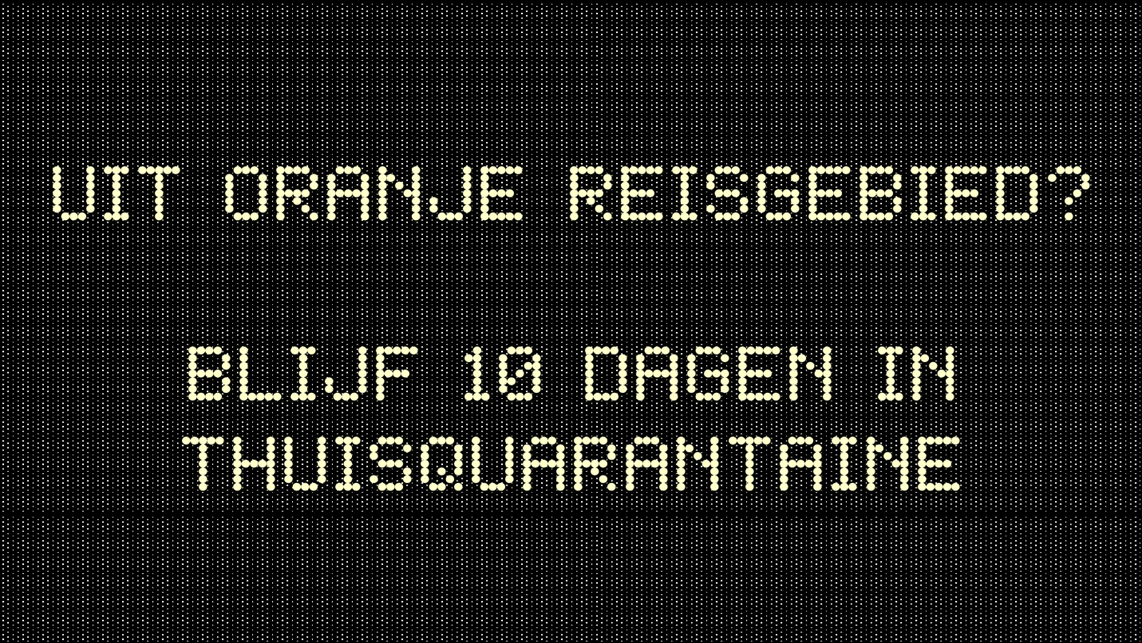
Continued disproportionate impact on daily life in the border region
With the circulation of the Coronavirus, governments are trying to restrict the movement of people. Staying at home and limiting unnecessary travel and visits is a frequently used and successful recipe against the flare-ups of Corona infections. To this end, border traffic is also being restricted. Travel advice is issued and quarantine rules are put in place. Recently, Dutch policy has changed in this respect, but not sufficiently as described in this blog.
Europe: Council Recommendation
On 17 October, the European Council adopted a recommendation on the coordination of restrictions on free movement in the wake of the COVID-19 pandemic. In this Recommendation, the European government leaders agreed, among other things, on cross-border mobility and when EU residents may be quarantined by Member States as a result of this mobility. This results in the patchwork of national policies of Member States with regard to cross-border movement, quarantine and testing obligations, effectively leading to severe restrictions on European free movement.
Under a certain infection rate, the quarantine measure for incoming travellers is justified. However, frontier workers, frontier students, transport workers and travellers for urgent medical, family or business reasons, inter alia, should not be required to undergo quarantine for those essential reasons.[1]
After all, the unhindered possibility of these cross-border movements in Europe concerns the very essence of European freedoms. Despite the fact that the Council recommendation itself has no legal value, this has set the political tone.
Dutch border policy
The Netherlands also issues travel advice for (regions of) the European Member States, i.e. green, yellow, orange and red. This travel advice is determined on the basis of quantitative and qualitative data. Germany and Belgium are marked orange throughout the Netherlands, which strongly discourages all non-essential travel. On returning from these orange areas, a quarantine of 10 days is strongly advised.. This quarantine may be interrupted for a number of necessary travel purposes, including for cross-border work, exceptional family visits and cross-border studies. However, the interruption of quarantine does not affect the duration of the quarantine period for everyday life.
Within the border region, these rules posed issues, such as the fact that frontier workers or students can effectively no longer get out of quarantine. After all, frontier workers can cross the border, even during the quarantine period, but it continues to form a new quarantine period. On 11 November Minister De Jonge acknowledged this undesirable situation and reported that an exception to home quarantine will apply to frontier workers and frontier students.
This concerns the definition of the IND (and vice-versa):
| You reside in another EU Member State (e.g. Belgium or Germany) with a valid residence permit for that country. You work/study in the Netherlands. You will return at least once a week to your place of residence in this other EU member state. |
Issue at the border for the economy and private life experience
This puts an end to the ‘quarantine loop’ for frontier workers and students, now that quarantine is not required for the sake of the frontier work or study itself. However, other necessary border traffic is explicitly not excluded from the recommendation for home quarantine. This means that the European Council’s recommendation has only been adopted partially. After all, the exception to quarantine only applies to those people who are defined as frontier workers or frontier students.
As a result, anyone who does not regularly commute across the border for work or study (read less than once a week) is not exempted from home quarantine and must then look at the rules for interrupting home quarantine for necessary travel purposes, as applied previously. This means, for example, that a plumber from a Dutch border municipality who has an assignment in a Belgian or German border municipality is not exempted from quarantine on return (too infrequently). Nor does it include someone who goes across the border for an important lecture or the signing of an important document, for example. They do not even constitute essential travel purposes in order to interrupt a quarantine period. After all, one does not qualify as a border worker. Another necessary travel destination is a journey for the purpose of contributing to the interests of the Dutch economy and society. This has now been further defined in De Jonge’s Letter to Parliament, in line with the definition for non-EU residents who wish to travel to the Netherlands in spite of the EU entry ban. It mentions significant amounts of money and strict conditions, which are not appropriate for a euregional economy in which work occasionally takes place across borders (such as the plumber who has a job in a Belgian or German border municipality).
Similarly, for example, crossing the border for compelling family matters or care is not exempted from quarantine (but fortunately it is a valid reason for interrupting quarantine), although the Council recommendation also lists this. Co-parenting, care, family relationships, and other necessary social and societal reasons are treated disproportionately differently across borders than domestic cases. It is clearly a conscious reason to restrict mobility, but this does not take into account the wider spectrum of the regional economy and social cohesion in the euregion, with all the incidental, local border traffic that goes with it.

